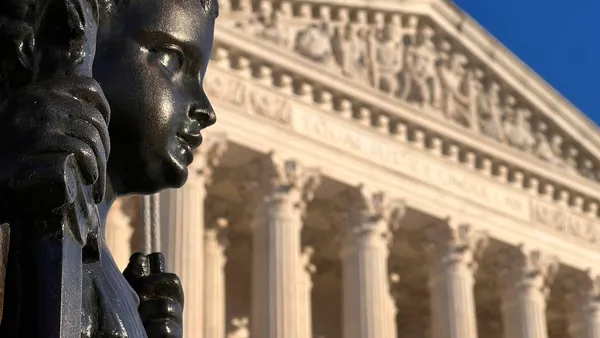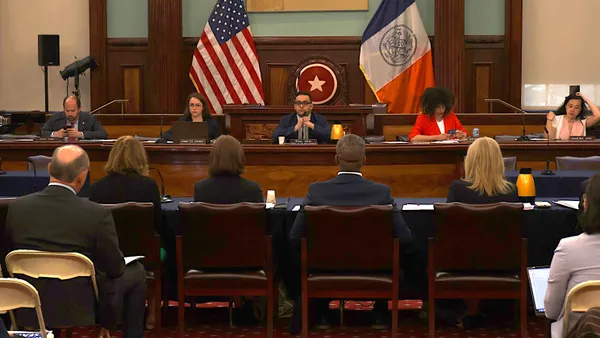Religious freedom protections and civil rights protections for LGBTQ people are two areas of U.S. law that have evolved considerably over the past two decades, creating a variety of compliance challenges for employers in 2022, according to Kelly Dobbs Bunting, shareholder at Greenberg Traurig.
In a presentation at the Society for Human Resource Management’s 2022 annual conference, Bunting told employers that they are increasingly likely to encounter situations in which these two types of protections are liable to clash; “It is coming to you if it is not already there,” she said.
HR departments will need to understand where the nation’s courts and various levels of government are going in order to prepare for those situations, Bunting said. She cited two recent cases that demonstrate how protections for religious beliefs, sexual orientation and gender identity intersect in the workplace.
The first, Brennan v. Deluxe Corporation, involved an evangelical employee who refused to complete his employer’s diversity training program because “the answers that the course sees as ‘correct’” contradicted his religious beliefs. Specifically, the course presented employees with a scenario in which a co-worker is undergoing a gender transition and directed employees to company policy around using pronouns that reflect the sex with which a person identifies.
A jury sided with the employer in Brennan. Bunting said that a key exhibit in the case was an email sent to the plaintiff by the employer’s HR manager describing Deluxe Corporation’s stance as an all-inclusive employer and the rationale behind its compliance course.
“It is important that as an employee of Deluxe you recognize that we do not expect you to change your values or beliefs but rather, as an employee, your behaviors at work are expected to uphold Deluxe’s standards and values,” the HR manager wrote.
The manager’s message pointed to an important aspect of the federal laws governing the intersection of LGBTQ discrimination and sincerely held religious beliefs that may conflict with evolving standards, Bunting said. Employees, she noted, “don’t have to agree'' with their employers’ policies around subjects like pronoun use, “but they’ve got to abide by it at work.”
Bunting’s second example showed how complex this intersection can be, however.
In an ongoing case, EEOC v. The Kroger Co., the U.S. Equal Employment Opportunity Commission has filed a lawsuit against an Arkansas Kroger store alleging that the employer discriminated against two employees with sincerely held religious beliefs when it declined their accommodation requests and subsequently fired them over uniform policy violations.
The employees refused to wear employer-provided aprons that featured embroidered rainbow hearts because they viewed the logos to be supportive of the LGBTQ community, which Kroger disputed.
Regardless of how the Kroger suit plays out, employers must engage in the interactive process and consider accommodations when cases involve a clash between LGBTQ rights and religious freedom, Bunting said.
“Mediation is so important,” she said. “It is so difficult to try to hear everyone’s point of view and make everyone feel valued. Trying to be welcoming of everyone but still maintaining some semblance of standards is really, really difficult.”
Additionally, Bunting noted that employers may rely on past guidance from EEOC on which religious accommodation requests constitute an undue hardship. Namely, the agency has said that an accommodation would pose an undue hardship if it would impose more than a de minimis cost on the operation of an employer’s business. Courts also have found undue hardship in cases where the accommodation:
- Diminishes efficiency in other jobs.
- Infringes on other employees’ job rights or benefits.
- Impairs worker safety.
- Causes co-workers to carry the accommodated employee’s share of potentially hazardous or burdensome work.
“You have to treat it the way you would treat any other accommodation,” Bunting said. “Sit, listen, understand both sides and come up with some kind of compromise.”















